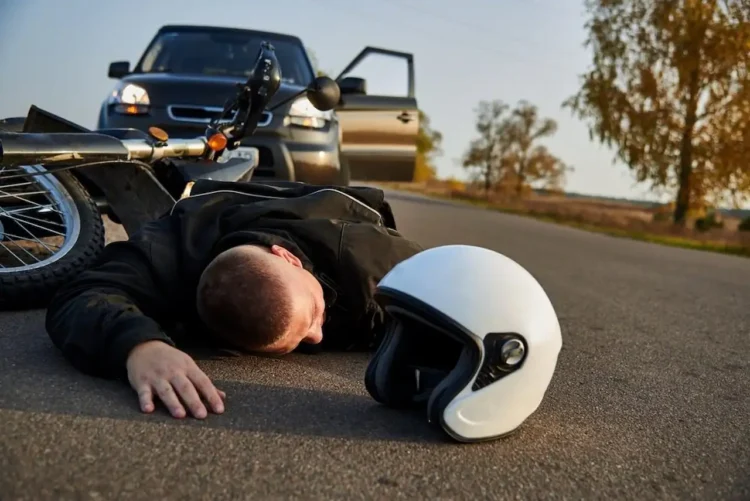Motorcycle accidents can be devastating, often resulting in severe injuries and complex legal battles. Riders face unique risks on the road, and when crashes occur, questions of liability, negligence, and compensation quickly come into play. DeHoyos Accident Attorneys understand how these cases unfold, particularly in a place like Houston, Texas—one of the busiest and most traffic-congested cities in the country. With its vast highways and unpredictable road conditions, Houston presents both opportunities and dangers for motorcyclists. While the freedom of the open road is exhilarating, the reality is that motorcycle accidents in Houston often involve serious injuries, and legal outcomes can be influenced by a variety of factors, including helmet use.
Texas has specific helmet laws that may affect how accident claims are handled, impacting everything from settlement negotiations to jury perceptions. Riders who fail to wear helmets may find themselves facing unexpected legal challenges, especially when dealing with insurance companies that seek to minimize payouts. Understanding how helmet laws interact with motorcycle accident lawsuits is essential for any rider involved in a crash. This article explores the crucial connection between helmet regulations and legal disputes, providing insight into what injured motorcyclists should expect in the legal process.
The Reasoning Behind Mandatory Helmet Regulations
Regulations concerning helmets are designed to improve the safety of riders by lowering the incidence of head injuries during accidents and decreasing fatalities and serious injuries. The enforcement of protective headgear requirements by authorities across regions has varying degrees of strictness or leniency, impacting the consequences of accident claims significantly.
Effect on Responsibility
Deciding who is at fault in motorcycle accidents can be quite tricky sometimes. Helmets tend to be a common topic of discussion in such situations—especially if injuries are part of the equation. In places where wearing helmets is compulsory, failing to do so could impact the injured person’s chances of seeking damages. Insurance companies and legal opponents might suggest that not following this rule played a role in making the injuries worse. This could lead to a decrease in the amount of compensation awarded.
Sharing Responsibility in Negligence Cases
Matters concerning helmet laws and lawsuits are influenced by concepts like comparative and contributory negligence as well. Comparative negligence enables an individual to seek compensation even if they share some blame for their injuries. However, the amount of compensation may be lessened based on the level of fault. On the other hand, contributory negligence can entirely prevent recovery if the injured party is deemed responsible. Whether or not a helmet is worn could impact how these principles are applied in such situations.
The Impact of Jury Influence
In accident lawsuits, the way jurors see things is also really important, especially when it comes to helmetless riders who might be seen as careless or irresponsible by the jury members. This can affect how they decide on who’s at fault and how much compensation should be awarded. Even in places where wearing helmets is not mandatory, not having one could make jurors think less favorably about a person’s actions. Lawyers always keep this in mind when getting ready for court and guiding their clients on what to expect from the case.
Evidence Based on Statistics and Testimony from Experts
When conducted in courtrooms, motorcycle accident cases often involve presenting data and expert opinions as evidence. This supports arguments related to liability and claims for damages by highlighting the importance of helmets in reducing injuries sustained during such incidents. Experts might explain how wearing a helmet could have influenced the injuries incurred by the individual involved in the accident to help jurors grasp the significance of safety gear in determining the consequences of the accident.
Insurance Firm Tactics
Insurance firms are known for using helmet regulations when dealing with accident claims by suggesting that failure to adhere to them implies carelessness. This can impact discussions about settlements and legal approaches in lawsuits involving riders who have been in accidents. Motorcyclists should be cautious of these tactics and get ready appropriately with the help of experts who possess experience managing such scenarios.
Legal Precedents and Trends
Legal cases from the past also play a huge role in shaping how helmet regulations impact cases related to accidents. Courts in many regions have issued differing judgments on how wearing a helmet affects claims. Certain courts view not wearing a helmet as a form of negligence, while others concentrate more on the circumstances that led to the accident itself. Being aware of these patterns can offer insights into legal consequences.
In Summary
Laws requiring helmets undoubtedly have an impact on cases involving motorcycle accidents by influencing who is considered responsible and shaping how juries view the situation during court proceedings. This means that riders need to be aware of the helmet laws in their area and understand how they could affect them if they were to be involved in an accident. Legal experts also need to keep track of any developments and approaches related to helmet use in motorcycle accident lawsuits.
Also read: Who is At Fault in Most Motorbike Accident Cases?





